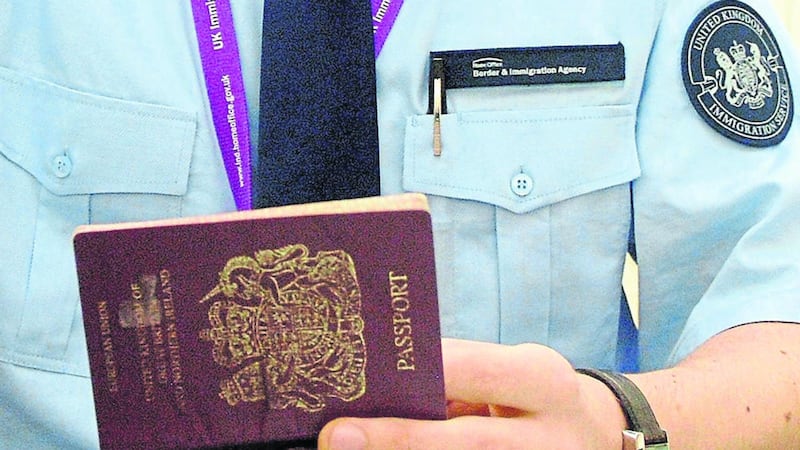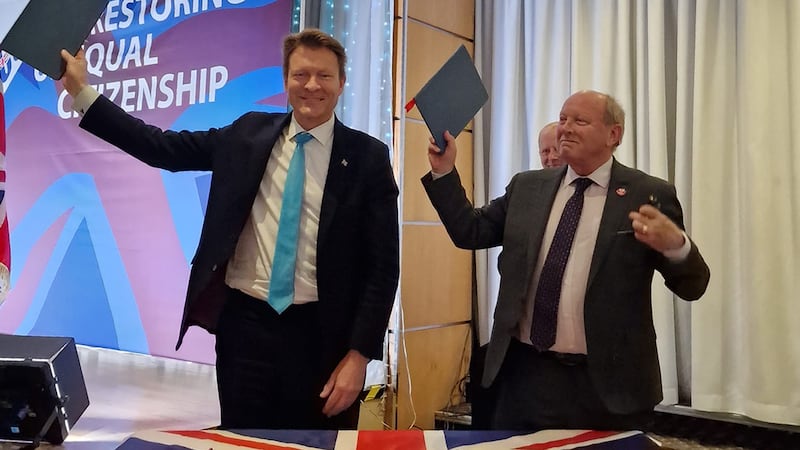THE Department of Health in England is trialling a proposal for passport checks in hospitals to prevent health tourism.
So, what if you are among the quarter of the population without a passport, or lack the time and funds to acquire one? What if you are among the third of adults without a driving licence, the UK’s only other generally recognised form of photo-ID?
The logic of the department’s proposal points to a national identity card. If health tourism alone was the issue, such cards might evolve from the existing paper health card, which could be made plastic and biometric, with advice to carry it at all times in case of emergencies.
Taken together with the plans around Brexit, however, we are certainly heading for the kind of formal national identity card New Labour tried to introduce a decade ago. Various announcements from Whitehall over the summer indicate that policing the UK’s borders will shift from ports and airports to checks by employers, landlords, banks and even by immigration officials on the street. As all these checks are legally required or possible already, beefing them up implies a more universal form of identification for citizens than the passports, licences and utility bills that currently suffice.
Plans for a national identity card will have implications for Ireland, north and south, resurrecting all the arguments we had on the subject last time. Resolutions to all those disputes had already been set out before a new coalition government pulled the plug on the scheme in 2010.
In Northern Ireland, cards would have been issued without union flags, annoying unionists enough to keep nationalists happy. In the Republic, Dublin had agreed to introduce similar cards within a similar timeframe, in order to preserve the common travel area. Compared to the problems we now face over Brexit, revisiting these solutions will be a no-brainer. Besides, people who have these arguments enjoy them, or at least, they would be lost without them.
Serious concerns about New Labour’s ID card scheme centred on the associated database, known as the National Identity Register. It would have contained 50 pieces of information on every UK citizen, including fingerprints and facial scans, all to be cross-referenced with other government computer systems.
This would seem to fit the instincts of Theresa May, sponsor of the most draconian internet snooping legislation in the democratic world. But objections to a database in principle are somewhat overblown. The British state has kept a lifetime record of everyone since 1538, when parish registers became mandatory. It is the practice of having to identify yourself, to officious cries of ‘papers please’, that is the most aggravating aspect of any identification system.
One of the reasons the UK and Ireland are attractive to migrant workers is precisely because we do not have national identity cards. Even where EU citizens are fully entitled to live in another member state, identity schemes are used to surreptitiously obstruct them - for instance, it may be impossible to get a job, accommodation or bank account without a card, yet it may also be impossible to get a card without a job, address or bank account. Predictably, one of the places most notorious for this is Brussels, where the EU’s precious freedoms are traduced right under its nose. Post-Brexit, a UK card would seek to openly impose such obstacles on immigrants. Its impact on British and Irish citizens would be more sinister.
Empowering everybody with a name badge and a clipboard to demand proof of your identity creates an endless infrastructure of intrusion.
Consider SDLP moves in 2011 to fine cyclists for not wearing helmets. Because bicycles carry no number plates and cyclists carry no licence, hopelessly elaborate means to identify culprits were attempted in a private member’s bill, including a register of helmets and compulsory reporting to police stations. The whole thing then collapsed amid well-deserved ridicule.
But with a national identity card it would have been simple, becoming law and inspiring the SDLP to press on with its next meddling notion.
The helmet example is illuminating because it is so petty - this is the level of control-freakery ID cards would unleash, which is largely why the UK ditched them in 1952, having introduced them for British and Irish citizens during World War II. People felt harassed and humiliated by so-called ‘little Hitlers’, with their chillingly foreign power to demand documentation.
That would be the final irony of a Brexit-induced ID card. It would make our day-to-day lives feel unpleasantly continental.
newton@irishnews.com









